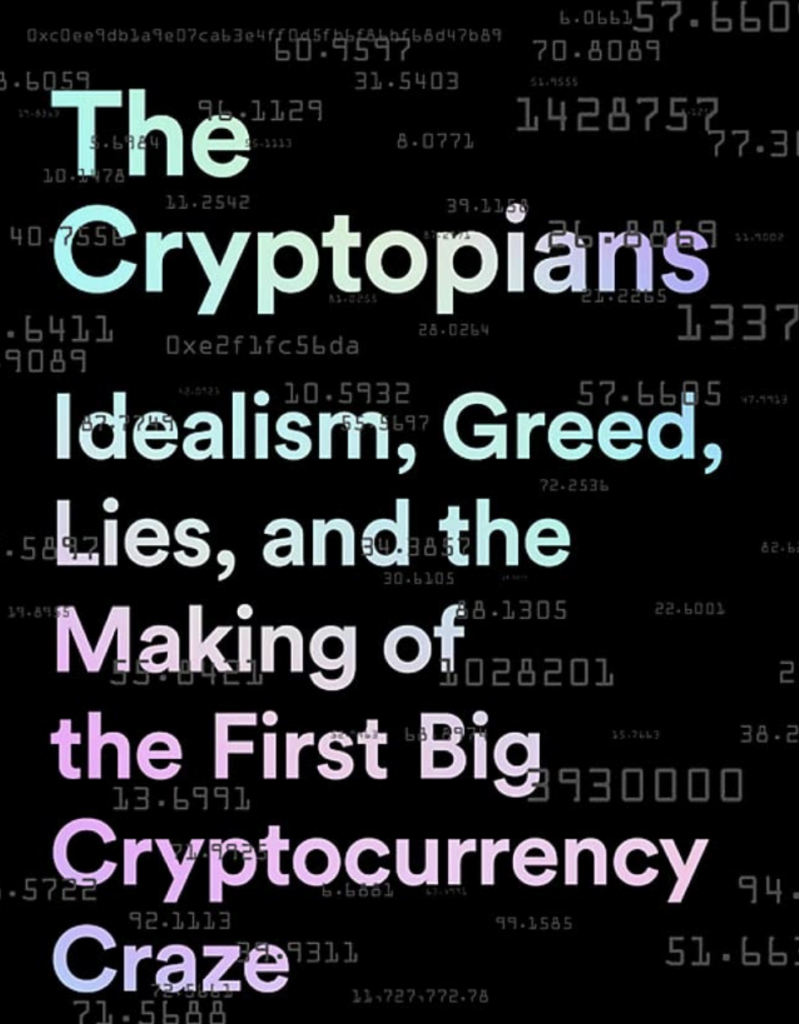I read through the engaging and addictive book in just two days. The Cryptopians includes fascinating behind the scenes details on the early days of Ethereum. It focuses on the character flaws of the main people involved and various early disputes and confrontations. The book then moves on to its two main topics, The Dao and management of the Ethereum Foundation, as well as engrossing coverage of the inner workings of Poloniex and ConsenSys. The book covers almost everything a basic bystander needs to know about Ethereum, including a solid technical explanation of what Etheruem is and the main objectives of the system, in a language most non-techies can understand.

The DAO
Cryptopians includes excellent coverage of The DAO, from inception to its demise. It doesn’t just explain all the events in detail, but describes the people involved and what exactly they were doing and thinking at the time of each event. It provides great background of the scandalous decision by the WHG to sell the 7 million or so ETC for ETH and BTC, eventually stopped by Poloniex. Somehow Shin managed to obtain testimony from almost everyone involved, about details of the private insider chats that went on. The book is a nostalgic trip down memory lane, reminding the reader of details such as Child DAO 59, covering every twist and turn in the DAO Wars.
Vitalik
The book also paints a picture of Vitalik as a young, socially awkward genius, of incredible immaturity and naivety. Vilatlik is taken advantage of and manipulated by countless unscrupulous individuals. Cryptopians then explains how Vitalik matures into a more rounded and robust character, who by 2018 becomes much harder to manipulate. This transformation in his character is said to make him more confident and finally happy.
Impact on Ethereum
The Cryptopians covers many governance failings at the Ethereum Foundation and details the high degree of animosity between some of Ethereum’s key players. Most of the characters are often revealed to be greedy, power hungry, dishonest, sociopathic or exceptionally bad at managing people. In the case of Vitalik, he is often portrayed as naive and easily manipulated. Due to some of this mismanagement and poor governance, towards the end of 2015 the Ethereum Foundation almost ran out of funds. Given the above, it is remarkable the degree to which Ethereum succeeded.
One can overestimate the significance of the confrontations and narcissism at play in the book. Afterall, many companies experience these kinds of political problems and managers are typically disliked by subordinates, as power can bring out the worst in some people. At the same time, while the book does an excellent job of covering these issues, it does not spend too much time discussing events where everyone got on well and were inspired by a common vision; that simply would not have made an engaging story. While the negatives in the book are of course true, these weaknesses and disputes were not always the main focus or at the top of people’s minds, as portrayed in the book. Despite the issues outlined in this book, most of the characters always remained positive about Ethereum and believed in the vision. The case for Ethereum was never about strong governance or the managers at the Ethereum Foundation. It was always about dreams and optimism, as well as technology, developers and Vitalik.
Comparison to Bitcoin & The Blocksize War
The Cryptopians covers the period 2014 to 2018, basically the same period as The Blocksize War, which focuses on 2015 to 2017 and is about Bitcoin. The Blocksize War covers Bitcoin’s major scandal and, in a way, The Cryptopians, Ethereum’s major scandals. Remarkably both issues interacted with each other, influencing the outcome on the other coin, these interactions are somewhat covered in both books. And both issues/scandals have their respective legacies, Ethereum Classic and Bitcoin Cash, which both trade at around 1% of the price of their larger peers today.
While The Blocksize War was written from the memory of the author and required little additional research, Shin’s exceptional book required a phenomenal amount of research. Shin appears to have diligently interviewed all of the key characters and pieced together varying accounts of events, to produce what is a thrilling and remarkably accurate and factual story. Being part of the space, I had heard several accounts of some of the controversies in Ethereum, such as the so-called “red wedding” in Switzerland, where Ethereum Foundation CEO Charles Hoshinkson was dethroned, but never have I seen or read such a complete, detailed and unbiased account. Shin has done a great job covering these historic events. I share Shin’s apparent view that this period is the most fascinating in the crypto space. 2011 to 2013 was typically when most of the interesting characters discovered crypto and in this period they were most curious and finding their feet. It is 2014 to 2018 was when they engaged in their most interesting battles and projects. After that, at least in my view, the people and projects never had that same excitement, belief and passion as we saw back then. The Cryptopians captures the culture and climate during this time, the golden age of crypto, like no other content out there.
Conclusion
The Cryptopians is not really about “crypto”, but it is more focused on Ethereum. If one wants an answer to the question “What is Ethereum?”, not at a superficial level, but a real understanding of the characters involved, the culture, Ethereum’s pitfalls and how Ethereum changed and evolved to become the much stronger network it is today, buy The Cryptopians.
5/5
………………………..
For those that are interested, as at 29th March 2022, the unclaimed DAO ETH/ETC balances are as follows:
- 1.3 million ETC worth US$62 million
- 171,000 ETH worth over US$581 million (Extra balance + Withdrawal contract)
The DAO lives on…
